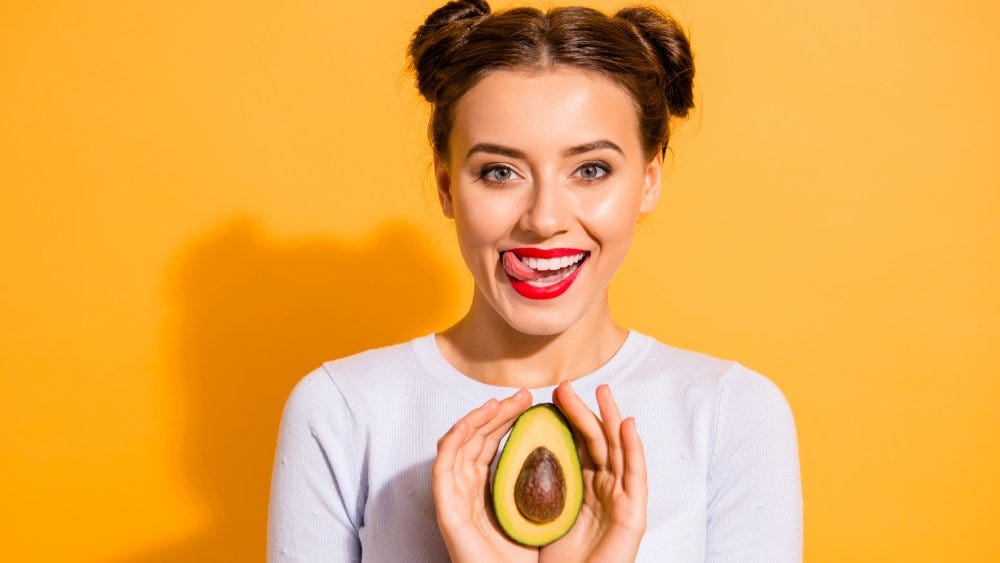Technically speaking, dietary fats, or fats that come from food, are one third of the trio of macronutrients (defined as dietary fats/proteins/carbohydrates) that we consume every day from our meals. Each of which plays an important role in our bodies. Get the proportions of these three right, and you'll be feeling pretty good physically, mentally, and emotionally. Get the mix wrong, and your daily experience will not be optimized. Understanding how each of these three play a role in your health is essential. Not knowing the wiser will have you flying blind in life, missing the basic tools, understanding, and knowledge to easily change your state of existence on a day to day basis.
Dietary fats come in a few major ways that being of the saturated fat, monounsaturated fat, polyunsaturated fat, and trans fat varieties. Two of these increase HDL (or good) cholesterol. The remaining two increase LDL (or bad) cholesterol. If you've been reading this blog, or other info on this topic, then you know which is which already. However, if you haven't, I'm going to remind you here of course. But first let’s establish the following.
Said cholesterol, in and of itself, has a function within the human body. That being to repair any inflammation to your blood vessels. However, if LDL cholesterol is in excess amounts, too much of it will be used to repair an inflamed site, causing a narrowing of said blood vessels. If this is combined with hypertension, or high blood pressure, this could cause a stroke (lack of blood flow to the brain), or heart attack (lack of blood flow to the heart).
It is currently thought that ingesting cholesterol, say via egg yolks, is not an issue to your overall blood cholesterol levels. Rather, it's the consumption of saturated fats that makes your liver produce high levels of LDL cholesterol. Furthermore, not only do trans fats do the same, but they may also cause the dreaded inflammation to blood vessels as well. And both lower HDL cholesterol. Therefore, both are considered to be bad fats.
Foods that are high in saturated fats typically are full fat dairy and proteins like pork, red meats, sausages.
Foods that are high in trans fats are highly processed foods that you will find boxed and shelved in the center isles of your local supermarket. Oh, and hydrogenated oils.
Hydrogenation itself is a process by which hydrogen is introduced into a vegetable oil. This will allow said vegetable oil to have a much longer shelf life. So think cheap oil, hydrogenated, in mass produced quantities. This makes for a larger yield from those that produce these products. Low in price. Low in flavor. Low in any micronutritional value. High in profit.
For example, margarine is hydrogenated vegetable oil impregnated with so much hydrogen that it will stay solid when refrigerated and spreadable at room temperature, just like butter. Some derivatives of this will be used in all the convenience snacks you find to increase their shelf life.
When heated, hydrogenated oils essentially create trans fats. This is why you've heard the perils of highly processed foods. They are largely banned in the European Union.
On the other end, mono and poly unsaturated fats are dubbed good fats because they do not make your liver produce LDL cholesterol like saturated fats. But, they DO increase HDL cholesterol levels which helps lower LDL. These can be found in nuts, nut butters, seeds, avocado, fatty fish, extra virgin olive oil, and grape seed oil. All of these contain lots of micronutrients a body needs, as well as some saturated fats. But no trans fats. Furthermore, the ratio of good fats to bad fats in these foods is so high that consuming them, despite containing saturated fats, is more than okay.
Now the idea of this post is to get you, the reader, used to the fact that you need to consume fats every day. However, one must do so while limiting those saturated and trans fat sources. Concentrating on those foods listed which are rich in mono and poly unsaturated fat. Staying away from hydrogenated oils is not that difficult. Either eliminate or limit the consumption of processed foods. Say once a week or less. Read the nutrition label of any processed foods you may want to purchase once in a blue moon. Ensure it has ZERO trans fats. Otherwise stick to fresh ingredients or meals prepared using fresh ingredients. For saturated fat keep to the following rule of thumb: for every 2000 calories, only consume 20 grams of saturated fat or less.
Simply put, you need protein in your life so you cannot avoid eating some saturated fats via meat, fish, and poultry. But, you can buy ground meats that are greater than 90% lean. This means, very little fat is ground together with the lean muscle of the animal. A lack of animal fat may make ultra lean mince meats fairly dry, so what I like to do is add extra virgin olive oil and mashed up avocado along with choice seasonings. A tasty and healthy alternative.
As mentioned in my cholesterol post, I've had to go back to fat free dairy so this is easy enough. Some cheeses made with some mix skim and whole milk are acceptable in my view. Calcium intake is no joke. You need calcium. So to some extent this cannot be avoided either.
At the same time, if snacking on processed foods was a thing for you, substitute those snacks with sparse amounts of nuts, seeds, or nut butters. A little will go a long way for 1oz nuts/seeds typically are ~160 calories. This is less than a cups worth...! Once more, nuts and seeds contain WAY more micronutrients than any processed food and are delicious.
Allegedly, dietary fats also play an important role in the absorption of calcium. Calcium which can help keep your bone density tip top into old age. But most important, in my view anyways, is that fats will aid in keeping cellular function up to snuff and one's hormonal levels/balance in check. And, compared to proteins and carbohydrates, dietary fats are more calorically dense to the tune of just over a 50% increase. Making you feel fuller for longer. More on this in future posts on proteins, carbohydrates, and macronutrient balance.
Here some daily dietary fat go to's as an example: Extra Virgin Olive Oil, roasted peanuts/peanut butter, almonds/almond butter, pistachios, walnuts, pumpkin seeds (preferably unsalted). So snack with the nuts and seeds, cook and dress with the EV olive oil.
Roughly 1/3 of the calories I consume everyday come from dietary fats. In total, it's roughly from ¼ cup of EV olive oil, and 5-6 ounces of nuts and seeds. This all depends on if I'm on a caloric surplus or deficit. For reference, 1 cup of nuts or seeds comes in at roughly 8.5 ounces. Once again, a little goes a long way.
Give quality sources of dietary fats a shot. Lots of micronutrients and antioxidants will be on tap. Lots of flavor and different textures. Lots of calories from a small package. Dense. Dense. Dense. If I miss my allotment of these foods I simply do not perform my best throughout the day. They give me lots of energy while helping stave off hunger and the dreaded hangries (those instances when one is parallelized with anger from being hungry haha). Likewise, if I consume too much saturated fats, my cholesterol climbs to dangerous levels. So keep it to fairly lean meats and either low or nonfat dairy.
To help grow this newsletter please Like, Comment, Share, and Subscribe.
To help support this newsletter, consider purchasing a Subscription.






